Find A Professional
More Items From Ergsy search
-
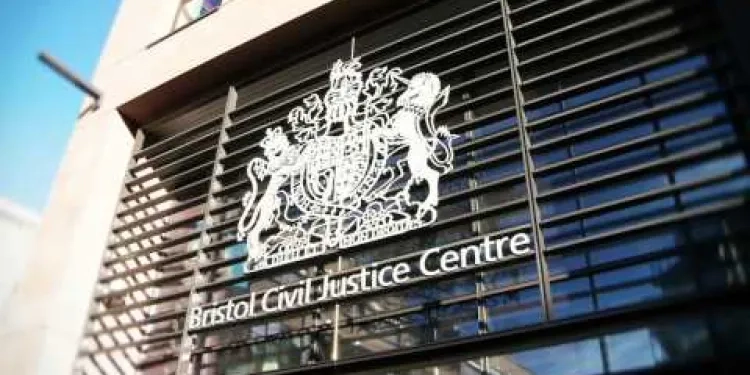
The Family Court without a Lawyer - Video 1 of 3
Relevance: 100%
-
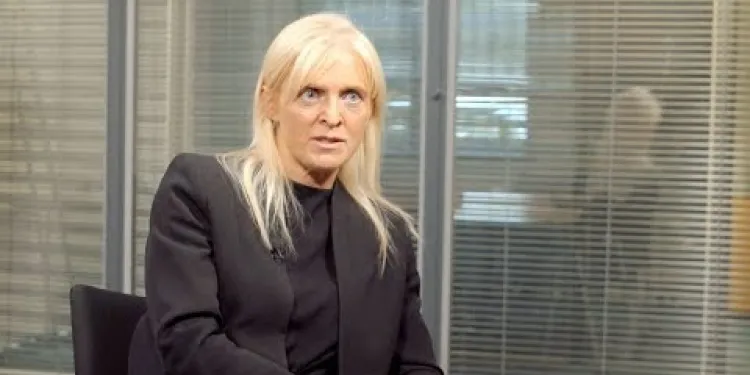
Child Care Proceedings | Family Law
Relevance: 93%
-

Can children benefit from chiropractic care?
Relevance: 71%
-
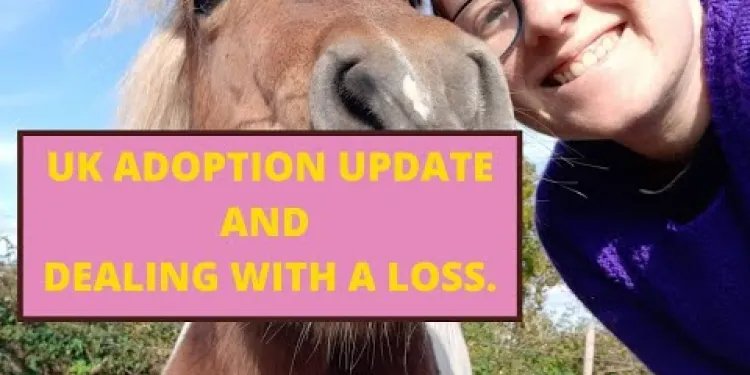
Adoption and dealing with a Loss
Relevance: 66%
-

Dementia Care at Colten Care
Relevance: 66%
-

Dr Hilary Jones on Residential Care PART 2.
Relevance: 65%
-

What support is available for families of individuals with PIMD?
Relevance: 61%
-
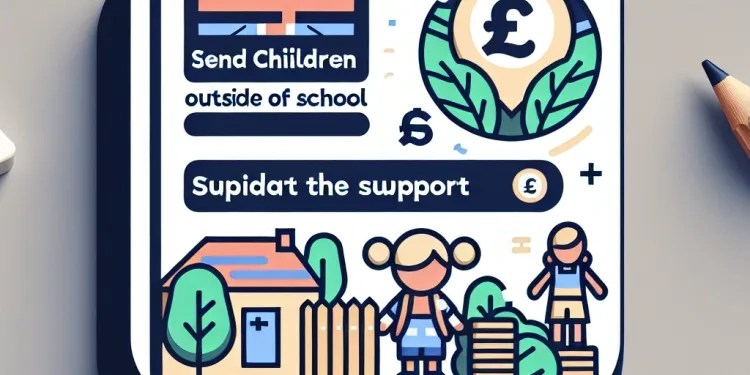
What support is available outside of school for SEND children?
Relevance: 61%
-
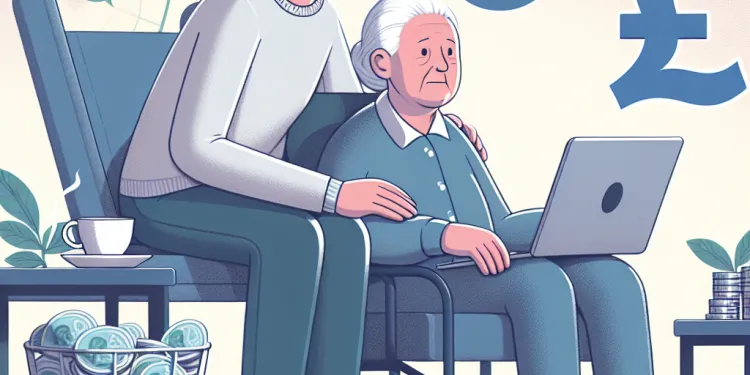
What role do carers play for those living with dementia?
Relevance: 58%
-
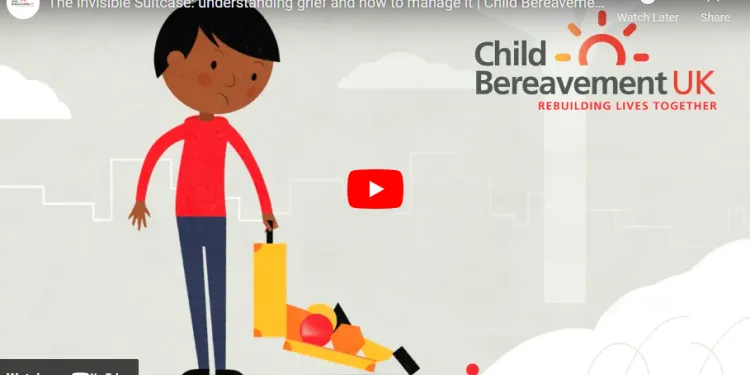
Child Bereavement
Relevance: 58%
-
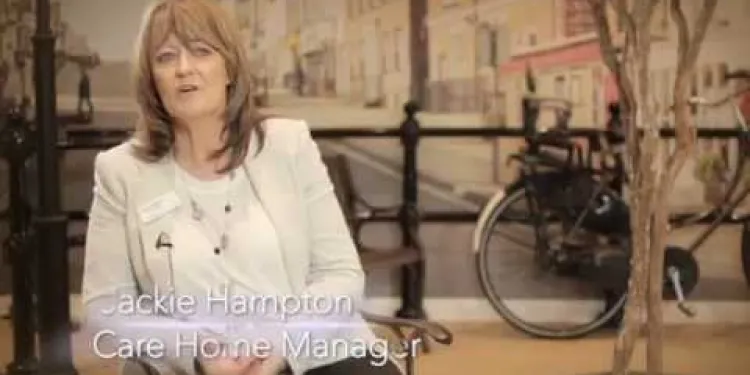
The role of care homes dedicated to caring for people living with dementia and memory loss
Relevance: 57%
-

What is end of life care?
Relevance: 56%
-

Navigating Changes in Family Law Post-Brexit
Relevance: 55%
-

How can I plan for future care needs?
Relevance: 55%
-

Dr Hilary Jones shares his professional and personal thoughts on Colten Care
Relevance: 54%
-
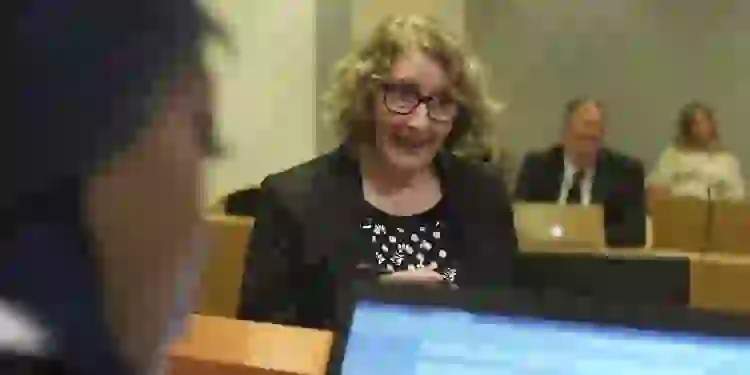
Magistrates in the Family Court: A Public Law Case
Relevance: 53%
-

Can children get NHS dentist appointments?
Relevance: 51%
-

Magistrates in the Family Court: A Private Law Case
Relevance: 48%
-

Navigating Child Custody Laws in the UK
Relevance: 47%
-
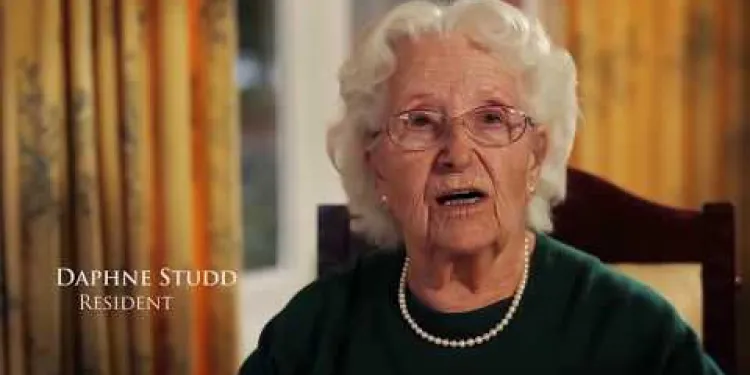
Colten Care values - montage of all 5 short films
Relevance: 46%
-
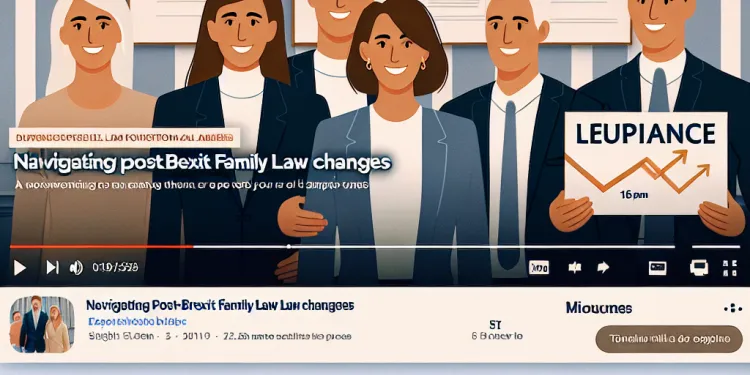
Navigating Post-Brexit Family Law Changes
Relevance: 45%
-

Can children take the same cold medications as adults?
Relevance: 44%
-
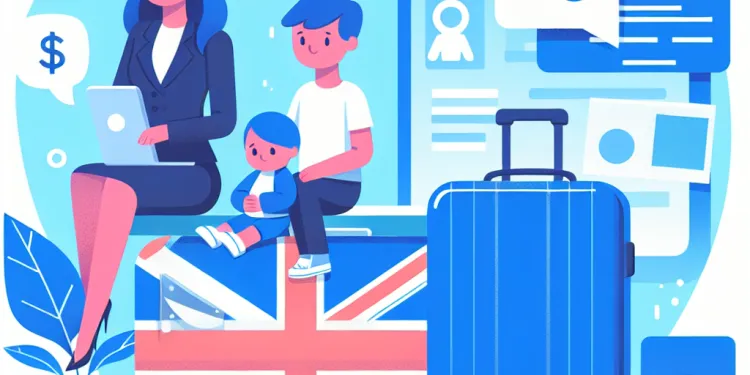
Navigating Child Custody and Visitation Rights in Modern UK
Relevance: 44%
-
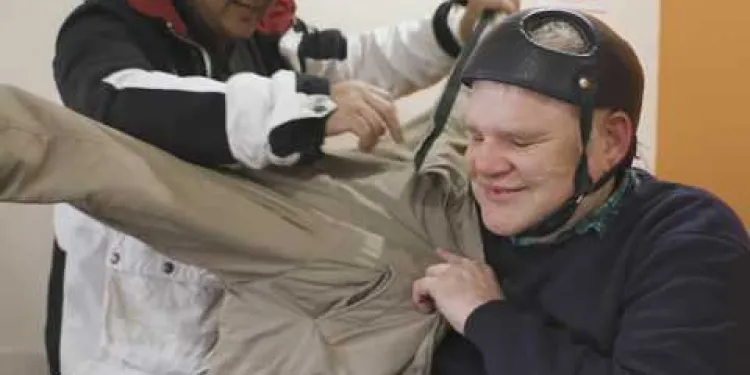
Transforming Care for people with Learning Disabilities and/ or Autism: Peter's Story
Relevance: 44%
-
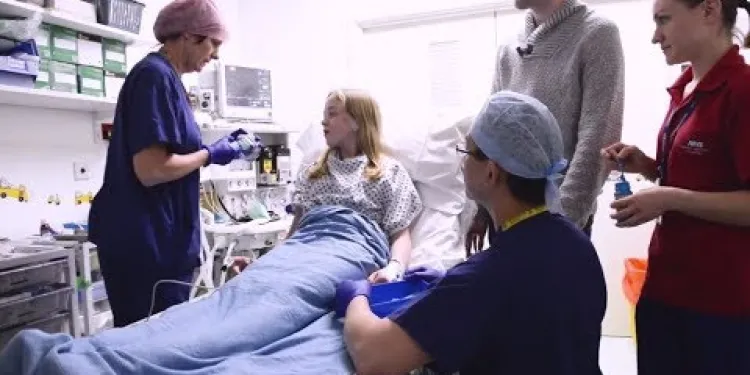
Having an operation in Oxford Children's Hospital with YiPpEe
Relevance: 43%
-
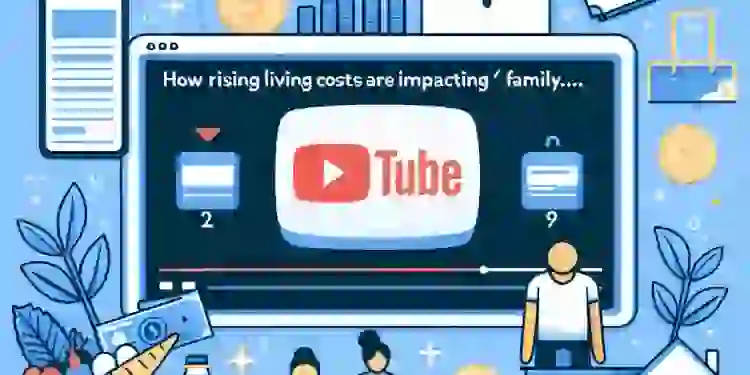
How Rising Living Costs Are Impacting Family Wellbeing
Relevance: 43%
-

Understanding Parental Rights in Light of New UK Child Protection Legislation
Relevance: 43%
-

Can children have sleep apnea?
Relevance: 43%
-
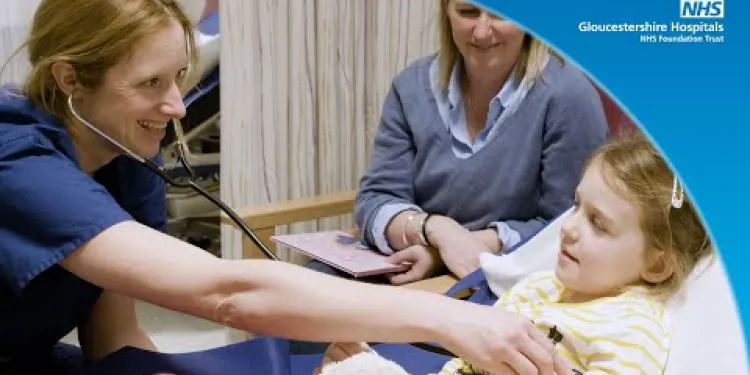
Having an operation at the Children’s Centre
Relevance: 42%
-

Are there specific laws governing SEND in schools?
Relevance: 42%
-

The Benefits of Family Activities
Relevance: 42%
-
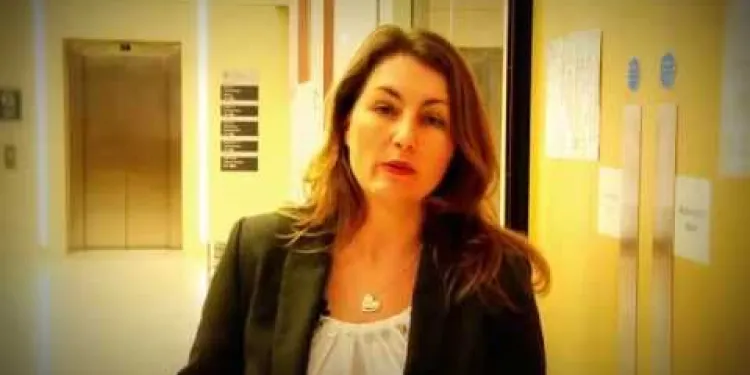
The Family Court without a Lawyer
Relevance: 41%
-

Who are SEND children?
Relevance: 40%
-
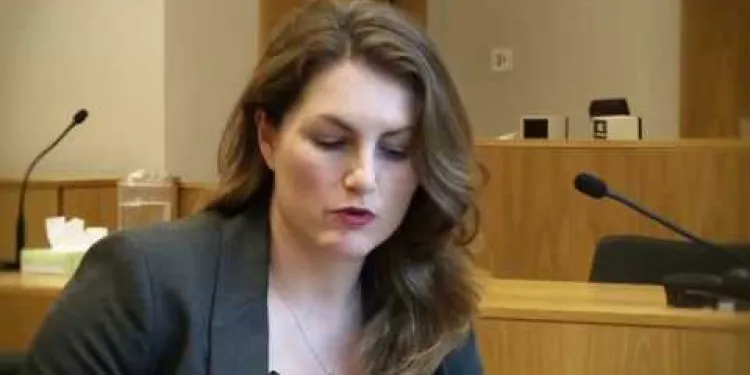
The Family Court without a Lawyer - Video 3 of 3
Relevance: 40%
-

What are SEND children?
Relevance: 40%
-
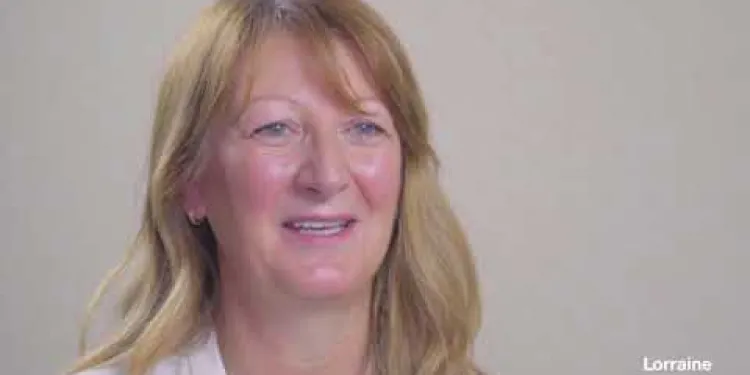
Getting help and support with frontotemporal dementia (FTD) (part 2/3)
Relevance: 40%
-

How is progress measured for SEND children?
Relevance: 39%
-
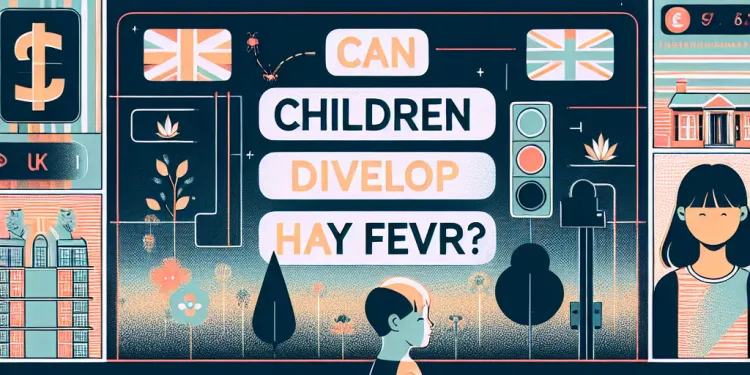
Can children develop hay fever?
Relevance: 39%
-
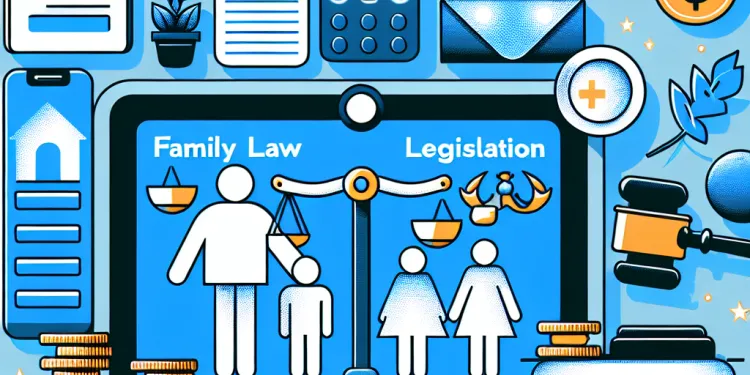
Impacts of Recent Changes to Family Law Legislation
Relevance: 39%
-

Children Act 1989 section 20 - Legislation
Relevance: 39%
Child Care Proceedings | Family Law
Introduction to Child Care Proceedings
Child care proceedings in the United Kingdom are legal processes initiated when there are significant concerns about the welfare of a child. These proceedings ensure that the child's needs are met and that they are protected from harm. The duty of safeguarding children falls under the responsibility of local authorities, which may intervene and seek orders from the Family Court to protect the child.
Types of Orders in Child Care Proceedings
There are several types of orders that the Family Court may issue during child care proceedings:
- Care Orders: Place the child under the care of the local authority, granting them shared parental responsibility.
- Supervision Orders: Allow the local authority to supervise the child's upbringing without removing the child from their home.
- Emergency Protection Orders: Provide immediate protection to the child, usually for up to eight days.
- Interim Care Orders: Temporary orders that last until the full care proceedings are concluded.
The Role of Key Participants
Several participants play crucial roles in child care proceedings:
- Local Authority: Responsible for the child's welfare and initiates the proceedings if necessary.
- Children and Family Court Advisory and Support Service (CAFCASS): Provides independent advice to the court and represents the child’s interests.
- Parents/Caregivers: Have the right to be heard and to contest the proceedings.
- Legal Representatives: Solicitors and barristers represent the local authority, parents, and the child.
Conclusion
Child care proceedings are essential mechanisms that aim to protect and promote the welfare of children at risk. The Family Court, aided by various professionals, makes critical decisions to ensure that children's needs are met while balancing the rights and responsibilities of parents and local authorities. Understanding these proceedings can help parents and caregivers navigate the complexities of family law.
Child Care Proceedings | Family Law
What Are Child Care Proceedings?
In the UK, child care proceedings are steps taken when there are serious worries about a child's safety. These steps make sure the child is safe and looked after. Local councils are in charge of keeping children safe. They can go to the Family Court to get help.
Types of Orders During Proceedings
The Family Court can give different types of orders during child care proceedings:
- Care Orders: The local council takes care of the child and makes decisions with the parents.
- Supervision Orders: The local council checks on the child but the child stays at home.
- Emergency Protection Orders: Quickly keep the child safe, usually for up to eight days.
- Interim Care Orders: Temporary orders while the court decides what to do.
Who Is Involved in Proceedings?
Many people are involved in child care proceedings:
- Local Authority: They look after the child's safety and may start proceedings.
- CAFCASS: Helps the court by advising and speaking up for the child.
- Parents/Caregivers: Can speak in court and say how they feel.
- Legal Representatives: Lawyers help the local council, parents, and child in court.
Conclusion
Child care proceedings help protect children who might be at risk. The Family Court works with experts to make choices about the child's safety. Knowing about these proceedings helps parents and caregivers understand what to do.
Frequently Asked Questions
What are child care proceedings?
Child care proceedings are legal processes initiated to determine the safety and wellbeing of a child and to make orders regarding their care, typically when there are concerns about a child's welfare.
Who initiates child care proceedings?
Child care proceedings are usually initiated by a local authority (children's services) when they believe a child is at risk of significant harm.
What is the purpose of child care proceedings?
The purpose of child care proceedings is to assess the child's situation and to ensure their safety and wellbeing, which may involve making court orders regarding their care.
What is a Care Order?
A Care Order is a legal order granted by the court that places a child under the care of a local authority, giving them shared parental responsibility with the child's parents.
What is an interim Care Order?
An interim Care Order is a temporary order that places a child under the care of a local authority until a final decision is made by the court.
What is a Supervision Order?
A Supervision Order allows the local authority to monitor the care of the child while they remain living at home or with relatives. The local authority does not have parental responsibility under a Supervision Order.
Who represents the child in care proceedings?
In care proceedings, a Children's Guardian is appointed to represent the child's best interests. The Guardian is usually a qualified social worker, and the child is also given legal representation through a solicitor.
Can parents contest child care proceedings?
Yes, parents can contest child care proceedings. They have the right to legal representation and can present evidence and arguments in court to defend their parenting and propose alternatives to care orders.
What is the role of a social worker in child care proceedings?
A social worker's role in child care proceedings is to assess the child's situation, provide evidence to the court, and recommend what they believe to be in the best interests of the child. They also work to support the child and family.
What is a Child Protection Conference?
A Child Protection Conference is a meeting that includes family members, social workers, and other professionals to discuss concerns about a child's welfare and to create a plan to ensure the child's safety.
How long do child care proceedings typically last?
Care proceedings are usually concluded within 26 weeks (about six months), although they can sometimes take longer depending on the complexities of the case.
What happens after a Care Order is granted?
After a Care Order is granted, the local authority will assume shared parental responsibility for the child and make arrangements for their care, which could include foster care, residential care, or living with family members.
Can Care Orders be appealed?
Yes, parents and others with parental responsibility have the right to appeal against a Care Order. The appeal must be made to a higher court, usually within 21 days of the order being made.
What support is available for families during care proceedings?
Families can receive support from legal aid for representation, as well as help from social services and other agencies providing assistance with issues such as housing, counseling, and parenting programs.
What is a 'Section 20 Agreement'?
A Section 20 Agreement is a voluntary arrangement where parents agree to let the local authority provide accommodation for their child without a court order. Parents retain parental responsibility and can withdraw consent at any time.
What criteria do courts consider in care proceedings?
Courts consider factors such as the child's safety, emotional and physical wellbeing, and the capacity of parents to meet the child's needs. The welfare checklist under the Children Act 1989 guides these considerations.
What are child care proceedings?
Child care proceedings help keep children safe. They happen when a court tries to decide what is best for a child. This can mean finding out who should take care of the child. A judge listens to everyone and then makes a decision. This is to make sure the child is safe and happy.
Here are some tips to help understand:
- Ask someone you trust to explain it to you.
- Look for books or videos that talk about similar stories.
- Use picture cards or drawings to help you understand.
Child care proceedings are when people go to a special meeting to decide if a child is safe and healthy. They make decisions about who should look after the child if there are worries about the child’s care.
Who starts child care proceedings?
Child care cases start when the local authority (children's services) thinks a child might be in danger.
Why do we have child care proceedings?
Child care proceedings are meetings to keep children safe. These meetings help decide the best place for a child to live if there are problems at home.
If you find it hard to understand, it helps to:
- Ask someone to read it with you
- Use pictures or drawings to explain
- Talk about it with a grown-up you trust
Child care proceedings are when people look at the child's life to make sure they are safe and happy. Sometimes, the court will make rules about who takes care of the child.
What is a Care Order?
A Care Order is when a court decides that a child needs help to stay safe. This means the child might live with a different family or in a safe place. The court and social workers make sure the child gets the care they need.
If you have questions, you can ask someone you trust for help. You can also use pictures or videos to help understand what a Care Order is.
A Care Order is a rule from a judge.
This rule means a child is looked after by local services.
The child's parents still help make decisions too.
What is an interim Care Order?
An interim Care Order is a short-term rule a judge makes. It is to help keep a child safe. The court tells people where the child will live for a while. The judge makes this decision until there is a big meeting to decide more things.
People and courts use interim Care Orders to make sure children are in a safe place. While waiting, the child might stay with other family, foster care, or in some other safe place.
To help understand better, you can:
- Ask someone to read it with you.
- Use pictures to understand the story.
- Talk to someone you trust about it.
An interim Care Order is a temporary choice. It means a child will be looked after by the local council for a short time. This happens until the court makes a final decision.
What is a Supervision Order?
A supervision order is when a court asks someone to check on a child. They make sure the child is safe and well. This person might visit the child's home.
The court decides how long the supervision order lasts.
If you want help understanding, you can talk to a teacher or a support worker.
A Supervision Order is a way for social workers to check if a child is being looked after well at home or with family.
Social workers can look at how things are going, but they do not have the right to make big decisions for the child.
Tools like pictures and storybooks can help explain this to children. Talking with a supportive adult can also help.
Who helps the child in court?
In court cases about a child's care, a special person called a Children's Guardian is chosen to help the child. The Guardian's job is to make sure what happens is best for the child. This Guardian usually knows a lot about helping families because they are a trained social worker. The child also gets help from a special helper called a solicitor. The solicitor knows about the law and works with the Guardian to help the child.
Can parents disagree with child care decisions?
Yes, parents can say when they do not agree with decisions about their child’s care.
If you want to do this, you can:
- Go to court: A judge can listen to your side and make a decision.
- Get help: Talk to someone who knows the rules, like a lawyer, to help you understand what to do.
- Write down important details: Keep a note of important things, like dates and what people say.
- Talk about it: Discuss with other family members or friends for support.
It’s important to speak up if you are worried about your child’s care.
Tools like easyRead and pictures can help to understand and remember the steps. Always ask someone you trust if you need help.
Yes, parents can say no to decisions about their child in court. They can have a lawyer help them. Parents can show proof and talk in court to explain why they should look after their child. They can also suggest different plans instead of what the court wants.
If you find reading hard, you can use tools that read text out loud or software that highlights words as you read. You can also ask someone you trust to explain things to you.
What does a social worker do to help children in court?
A social worker helps keep children safe. They talk to families and make sure children are okay. They help the judge understand what is best for the child.
If you find reading hard, you can ask someone to help. You can also listen to the words with a tool that reads aloud.
A social worker helps in deciding what is best for a child in court. They look at the child's life, tell the court what they see, and say what they think is best for the child. They also help the child and their family.
If the words are still tricky, you can try using a tool that reads the text out loud or asks someone to explain it to you.
What is a Child Protection Meeting?
A Child Protection Meeting is a gathering where people talk about a child's safety. These people want to make sure the child is safe and happy.
The meeting includes parents, teachers, and social workers. They all work together to find the best way to help the child.
If you find it hard to focus or understand, you can ask someone you trust to explain it more. Drawing or using simple words can help too.
A Child Protection Conference is a meeting. At the meeting, family members, social workers, and other helpers talk about how to keep a child safe. They make a plan to take care of the child.
How long do child care proceedings usually take?
Child care proceedings are meetings where people make important decisions about the care of a child.
These meetings usually take about 26 weeks. That is about 6 months.
Sometimes, they can be shorter or longer. It depends on the situation.
If you are going to one, you might want to:
- Bring someone to support you, like a friend or family member.
- Ask questions if you do not understand something.
- Take notes so you can remember what was said.
Care proceedings usually finish in about 6 months. But, sometimes they can take longer if the case is complicated.
What happens after a Care Order is given?
When a Care Order is given, it means the court asks for help to take care of a child. Here is what might happen next:
- The local council will help look after the child.
- The child might live with a foster family or in a children's home.
- The child's parents will still be important, but the council will make big decisions for the child.
- The council will make sure the child is safe and healthy.
If you want to know more, you can:
- Ask a social worker for help.
- Talk to someone you trust.
- Use pictures or storybooks to understand better.
Once a Care Order is given, the local council will help take care of the child. They will work together with the child's parents to make decisions for the child. The child might live with foster parents, in a group home, or with other family members.
Can you ask to change a Care Order?
Yes, parents and people who care for a child can say they disagree with a Care Order. They can ask a bigger court to change it. They usually need to do this within 21 days after the order is made.
What help can families get during care proceedings?
Families can get help when they go to court for care proceedings. Care proceedings are when a court looks at if a child needs help or a different place to live.
Here is how families can get help:
- Lawyer: A lawyer gives advice and speaks for you in court.
- Family Support: Family members or friends can help by listening and being there for you.
- Social Worker: A social worker gives advice and helps your family find services.
- Advocate: An advocate helps you talk about what you want and need.
- Support Groups: Joining a group helps you meet other families like yours.
- Counselor: A counselor helps you talk about your feelings and problems.
Some tools to make things easier:
- Visual Timetables: Use pictures and charts to understand what will happen.
- Easy-to-Read Guides: Find guides that explain things in a simple way.
- Audio Books: Listen to information if reading is hard.
Families can get help from legal aid for legal support. They can also get help from social services and other groups. These groups can help with housing, advice, and parenting programs.
What is a 'Section 20 Agreement'?
A 'Section 20 Agreement' is when parents agree for their child to live somewhere else for a little while. The child might stay with another family or in a special home.
Parents and social workers talk about this and decide together. It is to help keep the child safe and happy.
If you want to know more, you can ask a social worker or a friendly adult to help explain.
A Section 20 Agreement is when parents agree to let the local council look after their child. This is done without having to go to court. Parents still have responsibility for their child and can change their mind at any time.
What do courts look at in care proceedings?
Here is what courts check during care proceedings:
- The safety of the child. Is the child safe at home?
- The child's needs. Is the child cared for properly?
- The parent's ability. Can the parents look after the child well?
- The child's wishes. What does the child want?
- The future. What will happen to the child in the future?
If you need help understanding these, you can:
- Ask a trusted adult to explain it.
- Use apps to read the text aloud.
- Take breaks and read slowly.
Court judges think about things like if the child is safe, happy, and healthy. They also look at how well the parents can take care of the child. There is a special list called the 'welfare checklist' from a law written in 1989 that helps judges make these choices.
Useful Links
Useful links from: The Benefits of Family Activities
- NHS - Benefits of Exercise This NHS page outlines the mental and physical health benefits of regular exercise, including ideas for family activities.
- Family Lives - Advice & Support for Families Family Lives is a UK-based charity that provides support and advice on family wellbeing, including the importance of spending time together as a family.
- NHS - Mental Wellbeing While Staying at Home Offers tips on how to maintain mental wellbeing while staying at home, including suggestions for family activities to keep everyone engaged and connected.
- Action for Children - Parenting Advice Action for Children, a UK charity, provides advice on family activities and bonding, emphasizing the benefits of spending quality time together.
Useful links from: Understanding Your Rights in Divorce Proceedings
- NHS - Help for domestic violence and abuse NHS resource offering guidance and support for individuals experiencing domestic violence, including services that might be useful during divorce proceedings.
- Relate - Understanding Divorce Relate provides comprehensive information to help you understand your rights and the processes involved in divorce.
- Rights of Women - Family Law Rights of Women offers a range of resources and legal advice on family law, including divorce, to support women's legal rights.
- Citizens Advice - Ending a Marriage Citizens Advice provides detailed information on the steps involved in ending a marriage and understanding your legal rights throughout the divorce process.
Useful links from: Impacts of Recent Changes to Family Law Legislation
- NHS - Support for Parents Information and support for parents, including the impact of recent family law changes, provided by the NHS.
- Relate - How Changes in Family Law Can Affect You A UK charity providing support and advice on how recent family law changes can affect family relationships and parenting.
- Citizen's Advice - Family Law Citizen's Advice offers guidance on family law, including information on recent legislative changes and how they may impact families.
- Family Lives - Family Law Changes Family Lives provides advice and resources on how the latest changes to family law legislation impact families.
Useful links from: Navigating Child Custody and Visitation Rights in Modern UK
- NHS - Child Custody: Rights and Welfare Provides information on child custody, focusing on the rights and welfare of the child. Includes guidance on legal processes and resources for ensuring the child's best interests.
- NSPCC - Child Custody and Parenting After Separation Offers resources and advice on handling child custody and parenting responsibilities following separation. Ensures that child safety and well-being are prioritized during custody arrangements.
- Relate - Parental Separation and Child Custody Relate provides support and counseling for families experiencing separation and divorce, focusing on child custody issues. Offers practical advice to ensure children’s emotional and psychological needs are met.
- Gingerbread - Child Custody and Contact Arrangements Gingerbread offers guidance for single parents, including detailed information on child custody and contact arrangements. Provides support to help navigate legalities and maintain healthy relationships.
Useful links from: Advancements in Mental Health Resources for Families
- NHS Mental health services An overview of NHS mental health services available for individuals and families. It provides information on where to get help, how to access services, and the types of support available.
- YoungMinds A UK-based charity focused on the mental health and wellbeing of children and young people. Their website offers resources, advice, and support for families and professionals working with young people.
- Mind A UK charity providing advice and support to empower anyone experiencing a mental health problem. They campaign to improve services, raise awareness, and promote understanding, with resources for families.
- Rethink Mental Illness Rethink Mental Illness offers support and information to anyone affected by mental illness, including families and carers. Their website includes advice on a range of topics, from diagnosis to treatment and support.
Useful links from: Emergency Legal Guidance: Navigating the Impact of Sudden Policy Changes on Families
- Citizens Advice Provides free, independent, and confidential advice to help people resolve their legal, financial, and other problems. They offer specific guidance on navigating sudden policy changes and the impact on families.
- NHS - Patient Advice and Liaison Service (PALS) NHS service that offers advice, support, and information on health-related matters. PALS can help families navigate sudden policy changes and understand their impact on healthcare services.
- Shelter UK charity that provides legal advice and support for housing issues, including guidance on the impact of sudden policy changes on families' housing situations. They offer emergency legal guidance through their website and helplines.
- Family Rights Group UK charity that provides advice and support for families whose children are involved with children's services. They offer legal guidance in response to sudden policy changes affecting family rights and child welfare.
Useful links from: Navigating Post-Brexit Family Law Changes
- UK Government - Family Law after Brexit Official UK government guidance on handling family law disputes following Brexit, including jurisdiction and enforcement of family law decisions.
- NHS - Family and Relationships Support NHS resource offering support and advice on family and relationship issues, with potential impacts of legal changes post-Brexit.
- Citizens Advice - What Brexit means for your family law Citizens Advice provides detailed resources on how Brexit impacts family law, including child custody, maintenance, and divorce.
- Relate - Brexit and Relationship Support Relate offers advice and support for individuals and families affected by changes in relationship law due to Brexit.
Useful links from: Understanding Your Rights During Divorce Proceedings in the UK
- NHS - Mediation Information from the NHS on mediation services, which can be a helpful resource during divorce proceedings to resolve disputes amicably.
- Relate - Divorce and Separation Relate is a UK charity that provides relationship support, including guidance on separation and divorce. This resource can help you understand your rights and the support available.
- Citizens Advice - Ending a marriage Citizens Advice offers comprehensive information on the legal aspects of ending a marriage, including your rights and the processes involved.
- Women's Aid - Divorce and Financial Aid Women's Aid provides guidance specifically for women, including information on divorce and financial settlements, ensuring your rights are protected during the process.
Useful links from: Navigating Legal Guardianship and Parental Responsibility in the UK
- NHS - Legal Rights and Responsibilities Provides an overview of legal rights and responsibilities concerning health and social care in the UK.
- Family Rights Group Charity that supports families with concerns about their children’s welfare, offering advice on child protection and legal guardianship.
- Coram Children's Legal Centre Charity dedicated to providing free legal information, advice, and representation to children, young people, and their families.
- NHS - Social Care and Support Guide A comprehensive guide from the NHS on social care and support available, including sections on legal aspects and caregivers' support.
Useful links from: Understanding Parental Rights in Light of New UK Child Protection Legislation
- NHS - Children's Rights This NHS page provides an overview of children's rights, including parental responsibilities and the rights of the child within the healthcare system.
- NSPCC - Parental Responsibility The NSPCC (National Society for the Prevention of Cruelty to Children) details parental responsibilities, offering guidance on legal rights and child protection.
- Family Lives - Child Protection and the Law Family Lives provides practical information on child protection laws in the UK, including how new legislation may affect parental rights and responsibilities.
- Barnardo's - Working with Parents Barnardo's offers resources and support for parents, including information on navigating child protection systems and understanding rights under UK's new legislation.
Useful links from: Navigating Changes in Family Law Post-Brexit
- NHS - Divorce and Separation NHS page providing advice on coping with emotional and practical issues related to divorce and separation.
- Relate Relate offers counseling services for individuals and families dealing with relationship issues, including those arising from family law changes post-Brexit.
- Citizens Advice Citizens Advice provides information and support on various family law matters, helping individuals understand their rights and navigate legal changes post-Brexit.
- Rights of Women Rights of Women offers legal advice and information specifically to women, including matters of family law impacted by Brexit.
Useful links from: Upcoming Changes to Parental Leave Policies in the UK
- NHS - Maternity and Paternity Leave An overview of maternity and paternity leave, including entitlement, pay information, and links to additional resources provided by the NHS.
- Maternity Action - Parental Leave Maternity Action provides detailed guidance on parental leave policies, including upcoming changes, rights, and benefits for parents in the UK.
- Working Families - Policy and Campaigns Keep up-to-date with the latest news and campaigns on parental leave policies from Working Families, a leading UK charity focused on work-life balance.
- Gingerbread - Employment Rights Gingerbread offers detailed advice on employment rights, including parental leave and entitlements for single-parent families in the UK.
Useful links from: Navigating the Changes to Parental Leave Regulations
- NHS Employers - Parental Leave NHS Employers provides detailed information on the policies and guidelines for parental leave, helping NHS staff navigate the regulations effectively.
- Gov.uk - Parental Leave The official UK government website offers comprehensive details and eligibility criteria for statutory parental leave, along with how to apply.
- Working Families - Parental Leave Advice Working Families, a UK-based charity, provides up-to-date advice and support for parents and carers on navigating parental leave and the associated rights and benefits.
- NCT - Maternity and Paternity Leave The National Childbirth Trust (NCT) offers guidance and resources on maternity and paternity leave, helping new parents understand their entitlements.
- Ergsy carfully checks the information in the videos we provide here.
- Videos shown by Youtube after a video has completed, have NOT been reviewed by ERGSY.
- To view, click the arrow in centre of video.
- Most of the videos you find here will have subtitles and/or closed captions available.
- You may need to turn these on, and choose your preferred language.
- Go to the video you'd like to watch.
- If closed captions (CC) are available, settings will be visible on the bottom right of the video player.
- To turn on Captions, click settings .
- To turn off Captions, click settings again.
More Items From Ergsy search
-

The Family Court without a Lawyer - Video 1 of 3
Relevance: 100%
-

Child Care Proceedings | Family Law
Relevance: 93%
-

Can children benefit from chiropractic care?
Relevance: 71%
-

Adoption and dealing with a Loss
Relevance: 66%
-

Dementia Care at Colten Care
Relevance: 66%
-

Dr Hilary Jones on Residential Care PART 2.
Relevance: 65%
-

What support is available for families of individuals with PIMD?
Relevance: 61%
-

What support is available outside of school for SEND children?
Relevance: 61%
-

What role do carers play for those living with dementia?
Relevance: 58%
-

Child Bereavement
Relevance: 58%
-

The role of care homes dedicated to caring for people living with dementia and memory loss
Relevance: 57%
-

What is end of life care?
Relevance: 56%
-

Navigating Changes in Family Law Post-Brexit
Relevance: 55%
-

How can I plan for future care needs?
Relevance: 55%
-

Dr Hilary Jones shares his professional and personal thoughts on Colten Care
Relevance: 54%
-

Magistrates in the Family Court: A Public Law Case
Relevance: 53%
-

Can children get NHS dentist appointments?
Relevance: 51%
-

Magistrates in the Family Court: A Private Law Case
Relevance: 48%
-

Navigating Child Custody Laws in the UK
Relevance: 47%
-

Colten Care values - montage of all 5 short films
Relevance: 46%
-

Navigating Post-Brexit Family Law Changes
Relevance: 45%
-

Can children take the same cold medications as adults?
Relevance: 44%
-

Navigating Child Custody and Visitation Rights in Modern UK
Relevance: 44%
-

Transforming Care for people with Learning Disabilities and/ or Autism: Peter's Story
Relevance: 44%
-

Having an operation in Oxford Children's Hospital with YiPpEe
Relevance: 43%
-

How Rising Living Costs Are Impacting Family Wellbeing
Relevance: 43%
-

Understanding Parental Rights in Light of New UK Child Protection Legislation
Relevance: 43%
-

Can children have sleep apnea?
Relevance: 43%
-

Having an operation at the Children’s Centre
Relevance: 42%
-

Are there specific laws governing SEND in schools?
Relevance: 42%
-

The Benefits of Family Activities
Relevance: 42%
-

The Family Court without a Lawyer
Relevance: 41%
-

Who are SEND children?
Relevance: 40%
-

The Family Court without a Lawyer - Video 3 of 3
Relevance: 40%
-

What are SEND children?
Relevance: 40%
-

Getting help and support with frontotemporal dementia (FTD) (part 2/3)
Relevance: 40%
-

How is progress measured for SEND children?
Relevance: 39%
-

Can children develop hay fever?
Relevance: 39%
-

Impacts of Recent Changes to Family Law Legislation
Relevance: 39%
-

Children Act 1989 section 20 - Legislation
Relevance: 39%